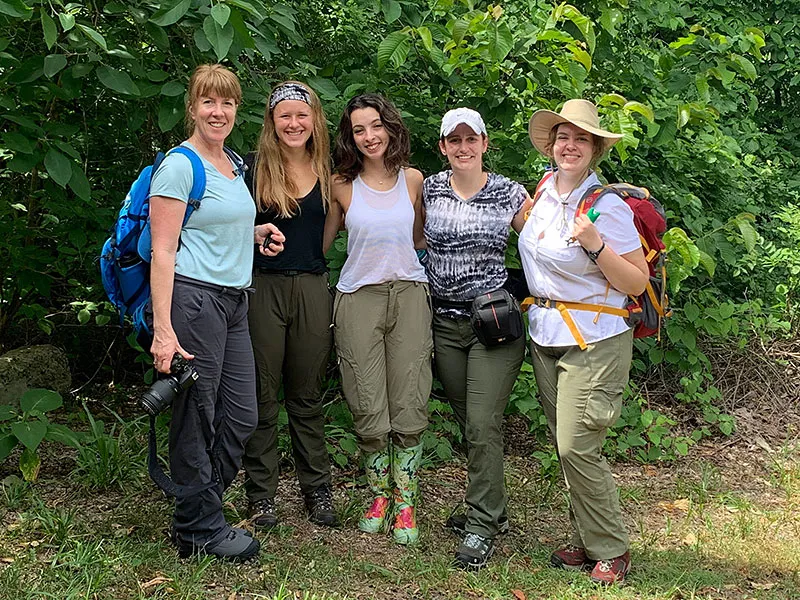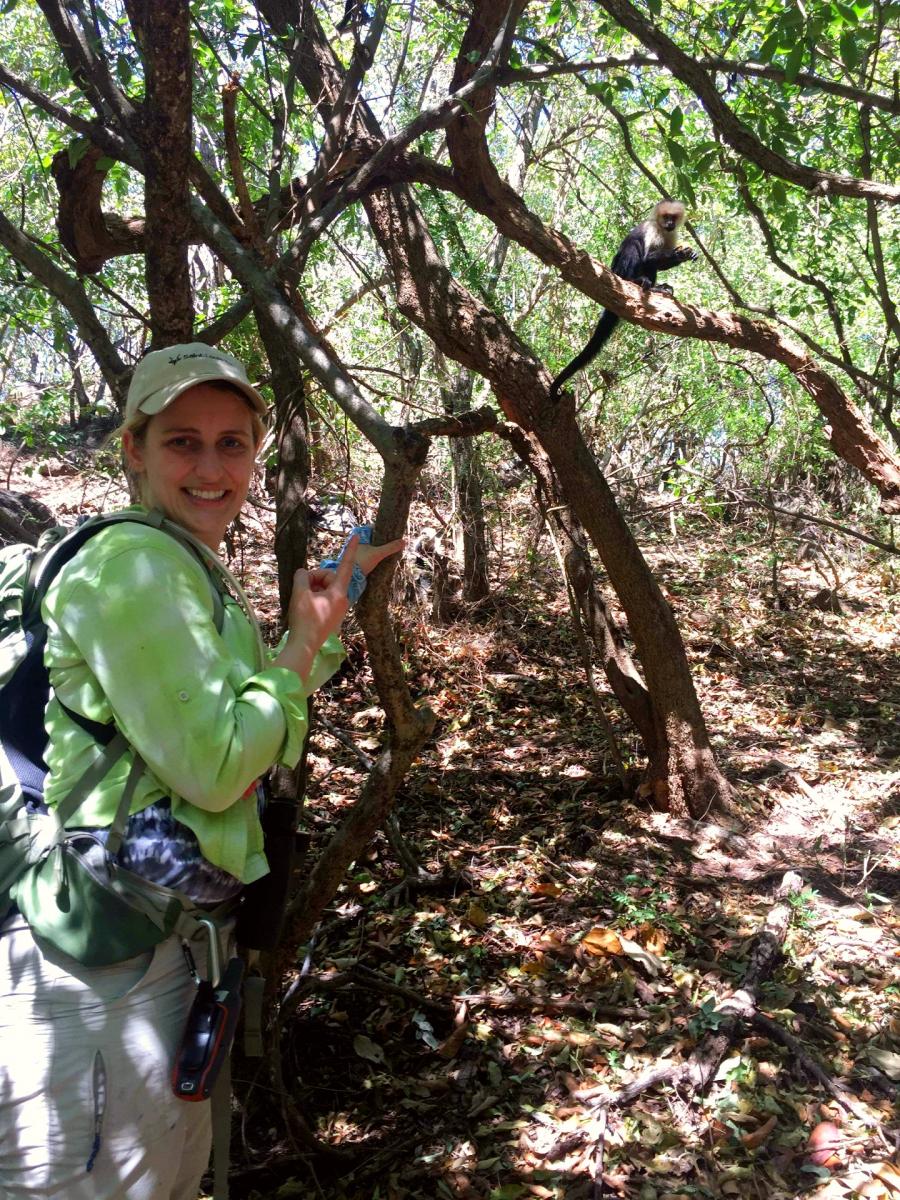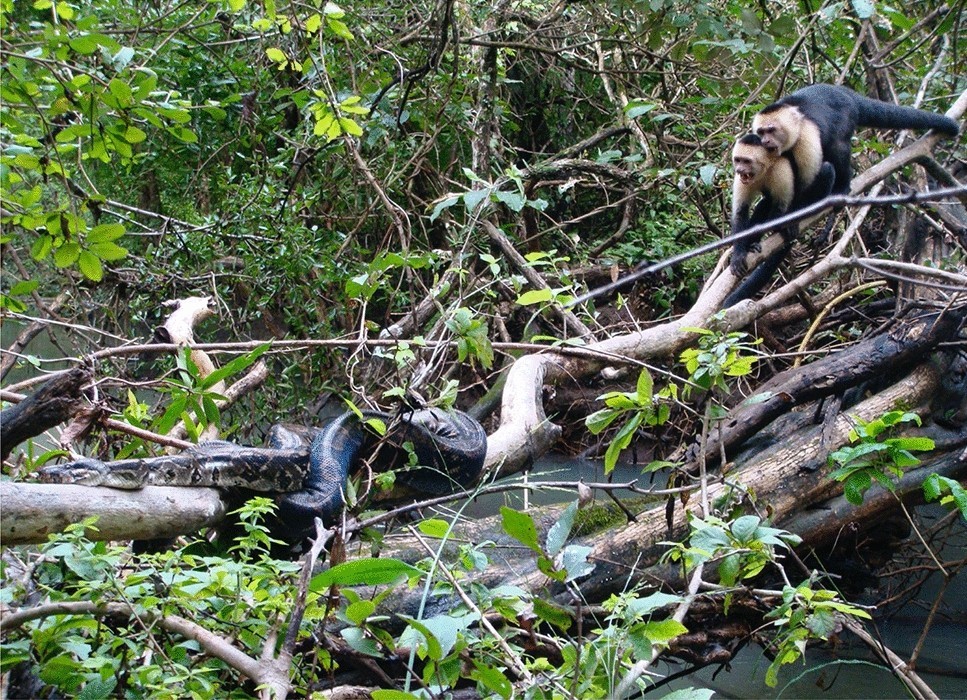
After a six-hour shift trying to catch a urine sample from an arboreal monkey (not an easy task) in the summer of 2019, I sat outside the Sector Santa Rosa field station enjoying the nice weather. Sector Santa Rosa is a large national park in northwest Costa Rica comprised of over 100 km2 of tropical dry forest and is home to one of the longest running primate research projects. As I waited for fellow researchers that afternoon, two of my team members, Sophie Lieber (SLA ’21) and Nuria Ferrero Marín, ran up with concerned looks. They showed me a video we would later publish and described how a snake attacked one of our study monkeys and the group rescued it! I couldn’t believe what they saw, and I praised Sophie for keeping the camera rolling despite her distress.
When our team returned to the U.S., we discussed publishing an article about this experience. I was thrilled at the prospect, especially because it would yield my very first publication. Our first task was to identify the individuals involved in the rescue, meticulously picking through the video frame by frame. Then, I sorted through several databases trying to find every published article of a constricting snake predation attempt on a primate, of which there are very few. In fact, I only found 11 published accounts. Discovering just how rare this observation was furthered my excitement. Though now there are only 12 accounts, victims of snake attack only survived when multiple group members physically attacked the snake (as opposed to threatening vocalizations). Thus, this publication was more than just an interesting observation—it was evidence of the role of cooperation in primate survival.
Our article was published in Nature’s Scientific Reports on October 8, 2020 by Professor Katharine Jack (Department of Anthropology), myself, and Tulane undergraduates and graduates Michaela Brown (SLA ’21), Nelle Kulick (SLA/SSE ’20), Sophie Lieber (SLA ’21), and Costa Rican staff Saul Cheves Hernandez and Nuria Ferrero Marín. My first publication is an important step in furthering my academic career, and I am fortunate that it was such an exciting publication. This project was a true collaboration between primatologists at all levels: full time project staff, undergraduates, a graduate student, and a professor. I have enjoyed a fantastic graduate experience, thanks in large part to my mentor, Professor Jack, who has helped me shape and develop my own research projects. With her assistance, I was able to secure a grant from The Leakey Foundation and collect behavioral data on the Santa Rosa capuchin monkeys from January to May of 2020, which has formed the basis of my doctoral dissertation. I am excited to explore and publish my results, and I can only hope my future endeavors are even half as exciting, enjoyable, and collaborative as this project was.


Margaret Buehler began the anthropology Ph.D. program in 2017 with Professor Katharine Jack as her advisor. She earned an M.A. in anthropology from Northern Illinois University in 2014 and a second M.A. from Tulane in 2019. Buehler’s doctoral research involves identifying how subordinate male behavior impacts female reproductive success in wild capuchin monkeys. She is also involved in several projects with Professor Jack examining sexual selection and dominance in white-faced capuchins.

